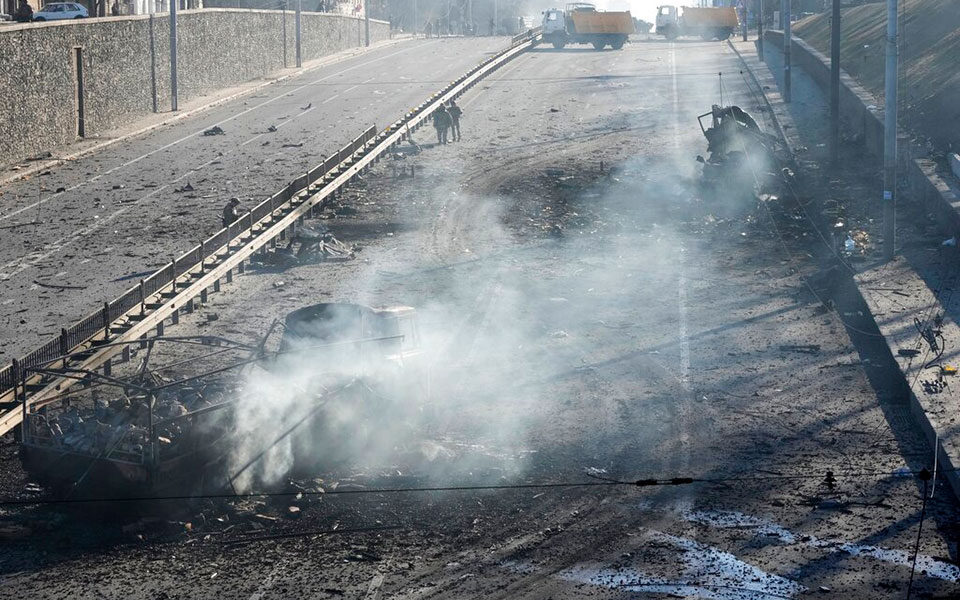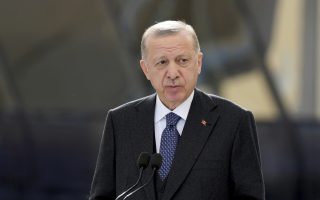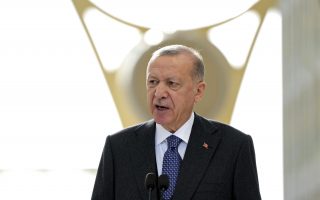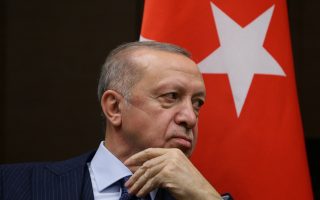Ukraine aftershocks concern Greece
Success of Russian aggression would open a Pandora’s box of border revisionism, spur conflict

Russia’s invasion of Ukraine had been more or less expected during the past few weeks; it still creates novel conditions in Greece and is expected to affect a number of regional issues.
From Greece’s perspective, the invasion could have a collateral effect on its relationship with Turkey. The questioning of existing borders and the use of violence to create faits accomplis (annexation of Crimea in 2014, recognition of the “people’s republics” of Donetsk and Luhansk now) is causing a lot of worry in Athens, since it opens the Pandora’s box of border revisionism.
With its aggressive move, Russia directly challenges the post-Cold War status quo in Eastern Europe and could provide excuses for anyone else claiming to have been treated “unfairly” by history. Turkish President Recep Tayyip Erdogan is among the aggrieved ones, judging by Ankara’s rhetoric over the past few years. From the “blue homeland” in the Aegean, the Black Sea and the Eastern Mediterranean, to the intrusion in northern Syria, involvement in Libya and the recent connection of the sovereignty of the Eastern Aegean islands to their demilitarization, it appears Erdogan’s goal is to indirectly challenge international law and the cornerstones of the European security system, one of which is the 1923 Treaty of Lausanne.
Athens was also worried by the mention of the “Turkish Republic of Northern Cyprus” – the breakaway state propped up by a heavy Turkish Army presence and recognized only by Turkey – by Russian Foreign Minister Sergey Lavrov. Lavrov mentioned it as an example of an entity that, although recognized only by one state, an invader, takes part in United Nations talks toward a political solution, making the parallel with the newly recognized, by Russia, “republics” of Donetsk and Luhansk.
Greek diplomats are trying to analyze the meaning of this reference, while Cypriots are even more worried because, so far, Russia had been one of the most steadfast supporters of the Republic of Cyprus in its long dispute with Turkey, and its apparent adoption of Turkish arguments is a new and unwelcome development.
Greek officials estimate that, at least for now, Ankara will not make any moves in its wider region, especially while the outcome of the Russian invasion is still not clear, but also because its own relationship with Russia in Libya and Syria is tangled and certainly unequal.





